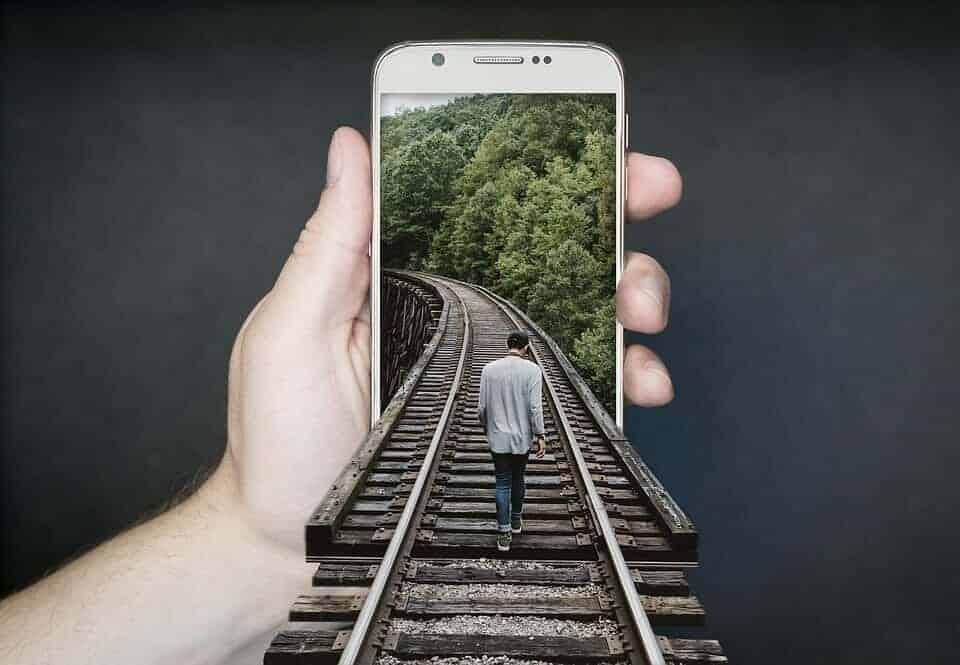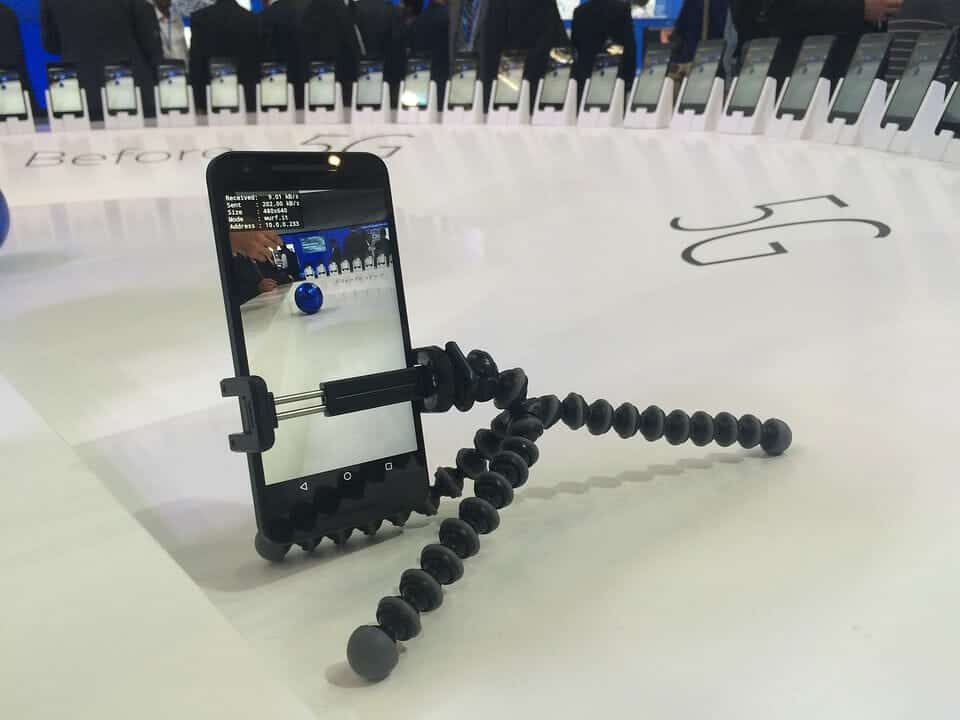
Right now is an exciting time for travelers. In 2017, over 4 Billion people traveled through the sky. That number is expected to double to almost 8 Billion by 2036. That’s an enormous amount of travelers.
One thing that all travelers have in common is they are demanding and also very particular with those demands. We all want bigger and better and expect it now. Travelers expect their trip to go flawlessly and have very high expectations.
In order to meet those demands and high expectations, travel technology has to follow along and keep getting better all the time. Technology plays a huge role in our lives now, and we can only expect it to get more involved and hopefully make things easier and more convenient for us.
Technology is changing the way we experience travel today and will continue to do so. I have compiled a list showing tech trends that will change the future of travel.
Virtual Reality (VR)/Augmented Reality (AR)

What is the difference between Virtual reality and Augmented reality?
Glad you asked. VR and AR differ in a few ways. First, for anyone who has experimented with virtual reality, you know that it’s pretty much a complete immersion experience that shuts off the physical world.
Augmented reality, adds digital elements to a live view. This is usually done by using a camera on a smartphone. Both VR and AR have an amazing ability to alter our perception of the world. The big difference is the perception of our presence.
VR will transpose and bring us somewhere else. AR will take our current reality and add something to it. It doesn’t move us somewhere else. It “augments” our current state by using glasses or camera.
Both VR and AR are becoming more advanced all the time and both are expected to be involved in our lives more over the next few years.
Tim Cook, CEO of Apple said this on Cramer.com about the excitement over AR with Apple products:
“I’m excited about Augmented Reality because unlike Virtual Reality which closes the world out, AR allows individuals to be present in the world but hopefully allows an improvement on what’s happening presently… That has resonance.”
Tim Cook.
So how are VR and AR going to change travel?
According to Consumer Technology Association’s 2018 report, 63% of consumers were willing to use virtual reality to explore holiday destinations to make a decision. We know travel decisions are made by our perceptions and visually orientated. So marketers are using this tactic to help us visualize what we can expect.
Imagine being able to see your hotel room in advance, taking a virtual walk through a golf resort before booking or even exploring huge national parks from your own home. Wouldn’t this help you make travel decisions? Sure would!
Now imagine using augmented reality as you walk past a restaurant and the open and closing times appear on your smart glasses. Or let’s say you are walking through a historical museum and all the tourist information appears. Wouldn’t that be amazing!
So in a way, Augmented reality would have more practical purposes than Virtual reality for travelers. The one negative I can think of is, maybe in many years from now, VR will become so amazing and popular, that it will harm actual traveling and make authentic traveling less frequent or obsolete. But who knows if that could actually happen.
Bitcoin

What is Bitcoin? What are the advantages of Bitcoin for travelers?
Bitcoin is a cryptocurrency, a form of electronic cash. It is an exchange of digital information that allows you to buy or sell goods and services. Travelers will always be searching for a safe and secure currency to travel with and the Bitcoin travel wave is definitely here. To be able to convert money easily into local currencies and even enjoy a very unique travel experience, Bitcoin is the way to go.
As bitcoin gains popularity and becomes a more widely used currency, travelers can use it as their primary source to pay for their travel expenses. Not just their plane tickets and hotel rooms. There are many airlines, car rentals and travel agencies accepting Bitcoin right now and more companies are accepting it all the time.
Instead of taking cash and credit cards, using Bitcoin can be very useful. Local Bitcoin exchanges would allow users to change their coins for local currency. The fact that bitcoin is a web-based currency will let travelers go through border controls and not worry about the authorities asking about how much money you are carrying.
Also, Bitcoin accounts can reduce the risk from pocket pickers and thieves. This is a huge security advantage that all travelers have over everyone else. It’s kind of like having extra travel insurance! Another advantage is bitcoin allows travelers to have a safe money reserve if they lose their physical wallets, their credit cards or their cash.
There are some great advantages for travelers to use Bitcoin, and it continues to grow in popularity every day.
AI- Done For You Automation

Are you a DIY person? Do you like to do everything for yourself and complete tasks without help? Or maybe you like having those tasks completed for you? Well, as automation continues to get better, how much you Do It Yourself (DIY) compared to how much is Done For You (DFY) will change. No doubt about it.
In the beginning, AI automation was limited to physical tasks only. We are now automating mental tasks. We use machine learning automation for booking reservations, transactions, customer service and much more. AI will speed up processing times, make fewer mistakes than humans and decrease overall costs for travel companies.
2 huge aspects of AI being utilized are robotics and virtual assistants. Imagine having a robot concierge and check-in service. Or robotic room service. Hotels are looking to cut costs all the time, so that just might be a possibility someday.
Virtual assistants are one of the next big things in the online world. You now have home assistants from Google, Amazon, and Microsoft which are getting so popular these days. Smart home automation is almost the norm for most people now, and being able to take these “assistants” with us on our travels is easy by their integration with smartphones.
Artificial Intelligence and done for you systems are the way forward for travel. We need to be able to adapt and as they say “get with the times”. AI will do the things we don’t want to do anymore. If the tasks that are too complex or dangerous for us to do, then AI will complete them. Plus help us do tasks that we are poor at. This is going to be very beneficial and enhance the quality of life.
I do believe these systems will be a huge cost saving for companies and make things more convenient for travelers.
5G Connectivity

We all need to stay connected during our travels, and sometimes that can be very difficult. Data is everywhere, but we still rely so much on WIFI to stay connected. As our devices become more advanced, being able to stay connected is a must. Enter 5G.
5G networks are the next generation of mobile internet connectivity, offering faster speeds and more reliable connections on smartphones and other devices than ever before.
5G networks are currently being developed and are rolling out all over the world. As they do, we still have 2G,3G,4G and WiFi connections that keep us powered and connected on the go.
It’s still not exactly known how much faster 5G will be than 4G, as much of the main infrastructure is still being implemented. But it looks like it is possible of delivering twenty five times the spped and capacity of 4G which is a massive upgrade to current download and upload speeds minimum 1GB per second.
Some estimates expect the average speed of 5G networks to reach 10Gb per second and possibly reach 800Gb per second. That’s unheard of in today’s world.
There will be a need for changes to existing smartphones and other devices. It’s unknown if your current 4G phone will need to be replaced or incur extra fees or charges. Smartphones are now coming out that have the capability of 5G as default.
So 5G connectivity is something that will definitely impact travelers. How much? Well, that’s yet to be seen!
Smart Hotels

I mentioned earlier how smart homes are now so popular and being able to connect to your home while traveling is something that many people do. But what about smart hotels?
Yes, smart hotels and smart hotel rooms are becoming a thing. People are so used to smart home technology, that it is almost expected now that your hotel of choice has some smart technology.
Many vacation rental property owners see this as a huge opportunity to cut costs and keep the workload down. For hotel owners, the technology needed to have smart rooms is much more involved. Voice assistants and voice-operated services are something will become normal to see in hotels.
Chances are, you will be able to order room service by using Alexa, Google or Siri. And maybe it will be delivered by a robot someday! Perhaps control the temperature of your room while at dinner, or turn the lights on before you arrive back. For more luxurious places, image turning on the fireplace from your smartphone or turning down the volume of the sound system you may have forgotten.
Smart hotel technology is here and will be here for a long time.
In summary,
It’s very obvious that 2018 and beyond has plenty of promise for travel technology. From smart hotels, and artificial intelligence to 5G networks and Bitcoin, the travel industry will show us all of the latest gadget trends to keep us on our feet. One thing for sure is the travel industry is always ready for change. But the question is…are you ready?
Hopefully, you found this article helpful. As always, feel free to leave a comment or send us a message anytime via our contact form.
Thanks for reading!

